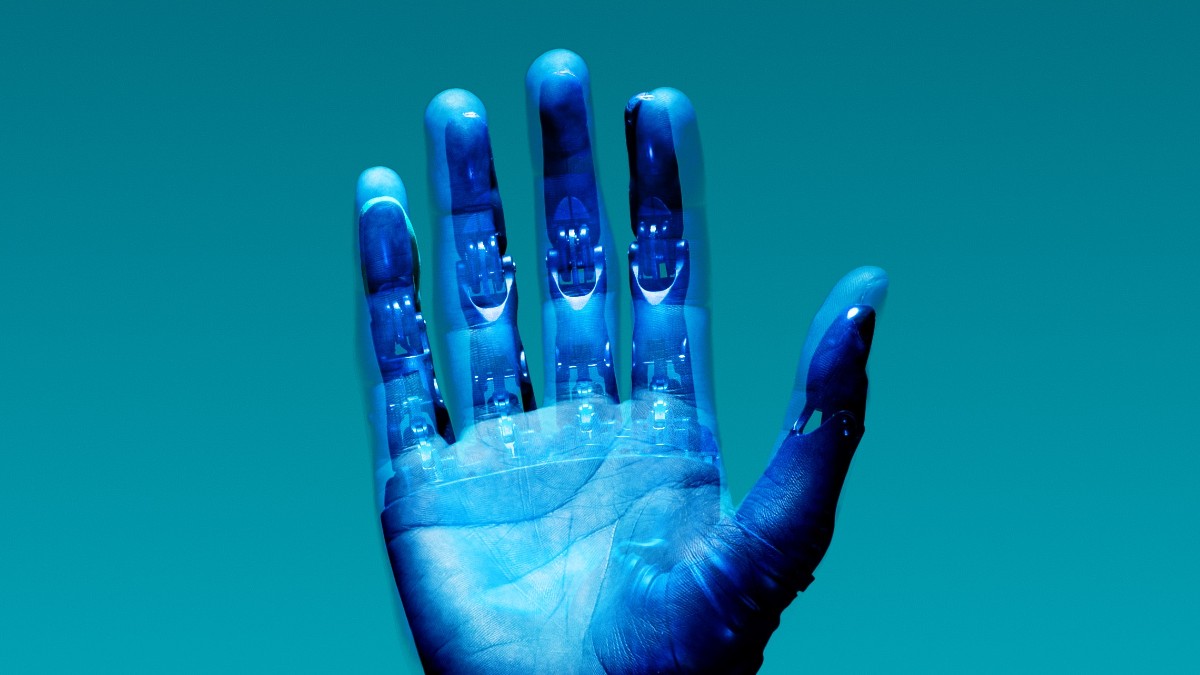
Can AI Therapists Provide Quality Mental Healthcare?
AI chatbots can help us cross some of the biggest hurdles in making mental health support accessible to all.

By Mark Travers, Ph.D. | 14 December, 2023
Is psychology truly "technology-proof," or is it on the brink of a technological revolution? The intersection of technology and psychology has opened up new possibilities, challenging the traditional notions of therapeutic interventions. As we grapple with the accessibility issues that plague traditional therapy, the question arises: Could artificial intelligence (AI) chatbots step in to bridge the gaps in mental healthcare?
To answer this question, it is important to consider the challenges surrounding traditional therapy, the potential of AI as a solution, while also balancing the nuanced question of whether AI truly could replace the human touch that a therapist provides.
The Inaccessibility Of Traditional Therapy
The challenges in accessing traditional therapeutic services in the United States are multifaceted and are underscored by a concerning decline in the number of community mental health centers. A study, published in BMC Psychiatry, reveals that a 14% decrease in community mental health centers nationally from 2014 to 2017, coinciding with a 9.7% increase in suicide rates during the same period.
This decline raises critical questions about the role of accessibility in mental healthcare. As the number of available mental health centers decreases, the ability of individuals to seek timely and appropriate care diminishes.
Beyond the scarcity of mental health professionals, additional barriers compounding the inaccessibility of traditional therapy include financial constraints, the persistent stigma associated with seeking mental health support and geographical limitations.
The consequences of these barriers are stark, with untreated mental health issues leading to a range of negative outcomes, including a decline in overall well-being, strained relationships and compromised professional and academic performance. The implications of these accessibility challenges extend beyond individual experiences to societal well-being.
By addressing the gaps in traditional therapy through innovative solutions like AI chatbots, there is a potential to reverse the past trends seen in the field of mental health. The intersection of technology and psychology becomes a crucial arena for reshaping the narrative of mental healthcare, providing hope for those currently underserved by traditional models.
AI As A Solution To Barriers In Mental Healthcare
AI emerges as a promising solution to the accessibility challenges entrenched in traditional therapy. Chatbots leverage machine learning and AI to mimic human-like behaviors and offer task-oriented frameworks with evolving dialogue capabilities.
This innovative approach presents a paradigm shift in mental healthcare, providing a potential means to overcome barriers such as time, location and availability. The research, as highlighted in a study published in Academic Psychiatry, showcases the potential of chatbots to deliver effective therapy against depression.
By incorporating cognitive-behavioral therapy principles, these AI-driven tools reduce depression and anxiety over intervention periods. Notably, the ability of chatbots to maintain an "always available" status provides users with a consistent source of support, unfettered by the limitations of our human schedules.
The implications of AI in mental healthcare extend beyond accessibility. The scalability of AI chatbots means that mental health support can reach individuals in remote or underserved areas, mitigating geographical constraints. Moreover, the data-informed understanding developed by chatbots, based on user interactions and shared information, holds the potential to enhance the personalization of therapeutic interventions over time.
However, it is essential to approach the integration of AI therapy with caution. While AI presents a valuable solution to accessibility issues, it cannot entirely replace the depth of understanding and empathetic connection provided by real therapists.
Striking a balance between the efficiency of AI and the human touch of traditional therapy becomes imperative for crafting a comprehensive and effective mental healthcare landscape. As we navigate this evolving terrain, it is crucial to consider the ethical implications, ensuring that technology augments, rather than replaces, the human-centric aspects of mental healthcare.
Could AI Replace Human Therapists?
The question of whether AI could replace human therapists hinges on a nuanced evaluation of when AI is beneficial versus when a real clinician is necessary. AI therapists could be used for:
- Routine check-ins. Providing consistent support and monitoring mental health over time.
- Immediate assistance. Offering coping strategies or relaxation techniques in urgent situations.
- Accessible support. Increasing accessibility in regions with a shortage of mental health professionals.
- Skill building. Effective for skill-building exercises, such as cognitive-behavioral therapy techniques.
Alternatively, a real therapist should be used for:
- Complex mental health issues. Expertise and nuanced understanding are essential for severe conditions.
- Personalization. Tailoring the approach based on an individual's unique background and experiences.
- Empathy and emotional connection. Providing a level of empathy that AI cannot fully replicate.
- Crisis situations. Assessing and addressing severe situations or acute distress.
- Dynamic interactions. Adapting the approach based on dynamic cues during a session.
In some cases, a combination of AI and human therapy may offer a comprehensive approach, where AI tools provide ongoing support, monitoring and skill-building, while real therapists handle more complex issues and provide the human touch necessary for emotional well-being. The key is to consider individual needs, the nature of the mental health concern and the level of support required when deciding between AI and human therapy.
Conclusion
As we navigate the evolving landscape of mental health care, incorporating AI into therapy holds potential benefits. It offers accessible and immediate support, but the decision ultimately depends on individual needs. By understanding the strengths and limitations of both AI and human therapists, individuals can make informed choices to enhance their mental well-being. For those curious, perhaps it's time to test AI out for advice or just someone to talk to, taking a step towards a future where technology and psychology coexist harmoniously.
